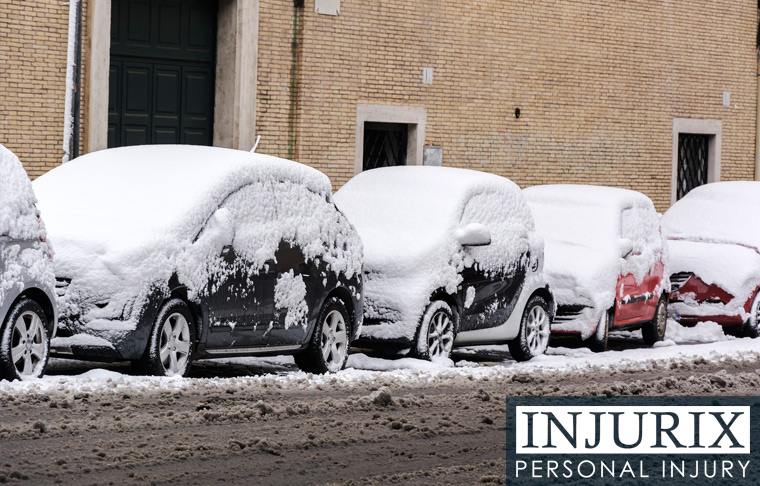
You slipped on ice in a parking lot and were injured. You naturally want to know if you have enough of a case to file a personal injury lawsuit against the owner of the property. That’s going to depend on a number of factors. The most basic of these factors come down to what your purpose was for being there and who owns the lot.
If you were on the job, then your remedy will come through your employer’s workers’ compensation insurance. There’s no need for a lawsuit—in fact, suing your employer under these circumstances (if the fall came in the company lot) is prohibited because workers’ comp provides the solution. You’re also in for a tougher case if you were in the parking lot of a government building. Municipalities have limited immunity from being sued in these circumstances.
But for the sake of this discussion, let’s assume you were on personal time and in the lot of a privately owned company. We’ll also assume you suffered injuries that are worth suing over (e.g., a broken hip).
Here’s what you’re going to need to establish to win your case.
- You have to prove where you fell. If there are other people in the parking lot that saw the fall, make sure you have their names and contact information. The same goes for the medical personnel that treated you. A case like this likely involved an ambulance and the medical staff can testify as to the whereabouts of the injury.
- You have to prove what caused you to fall. At the moment, it might seem self-evident that it had to be the ice, but nothing is self-evident in a court of law. Take pictures of the area where you fell.
- Finally, you have to prove that the owner of the property is at fault for your mishap. That is, did the owner fail to provide a “reasonable duty of care”? How this question is answered will essentially decide the case and the following factors have to be kept in mind.
- A reasonable duty of care is not the same as an infallible duty of care. Let’s say the owner came out and shoved the lot or had it plowed in a timely manner. But the snow was thick and there were vestiges that remained stuck to the ground and froze. A court is unlikely to see this as violating the reasonable duty of care mandate.
- Some states have “natural accumulation rules.” If you go out in the middle of falling snow or immediately thereafter, it’s not reasonable to expect the lot to be cleared. Owners are given a reasonable timeframe in which to clear the snow and ice.
- Finally, your own precautions will come under scrutiny. Was your footwear suitable for conditions? Did you walk carefully, as a reasonable person would under such circumstances?
All of these factors have to be weighed by a civil court to determine if you’ll receive monetary redress for a slip and fall on ice in the parking lot.